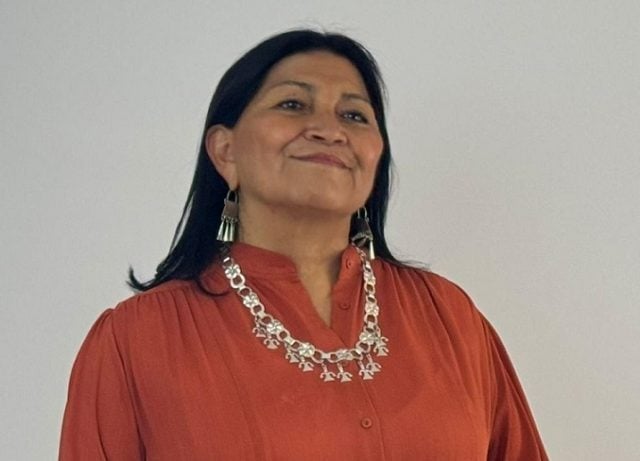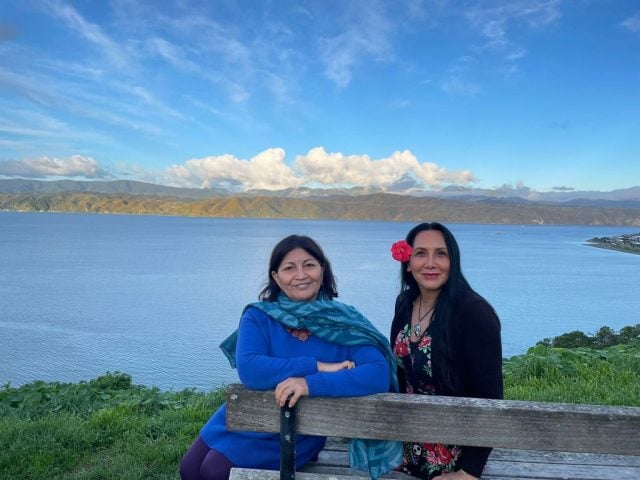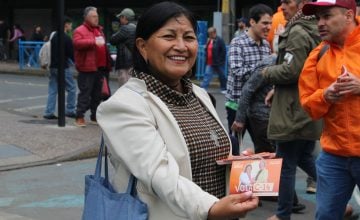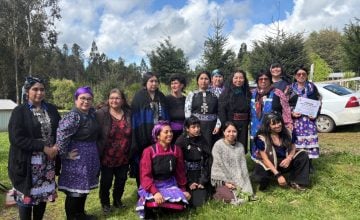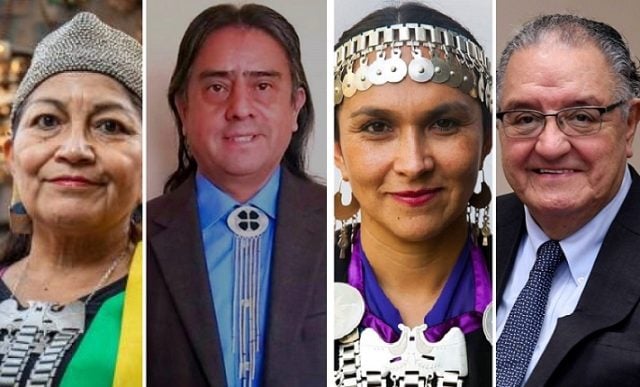From the Ballot to Redress: Chile’s Democratic and Indigenous Legacy of October 5.
By Elisa Loncón Antileo
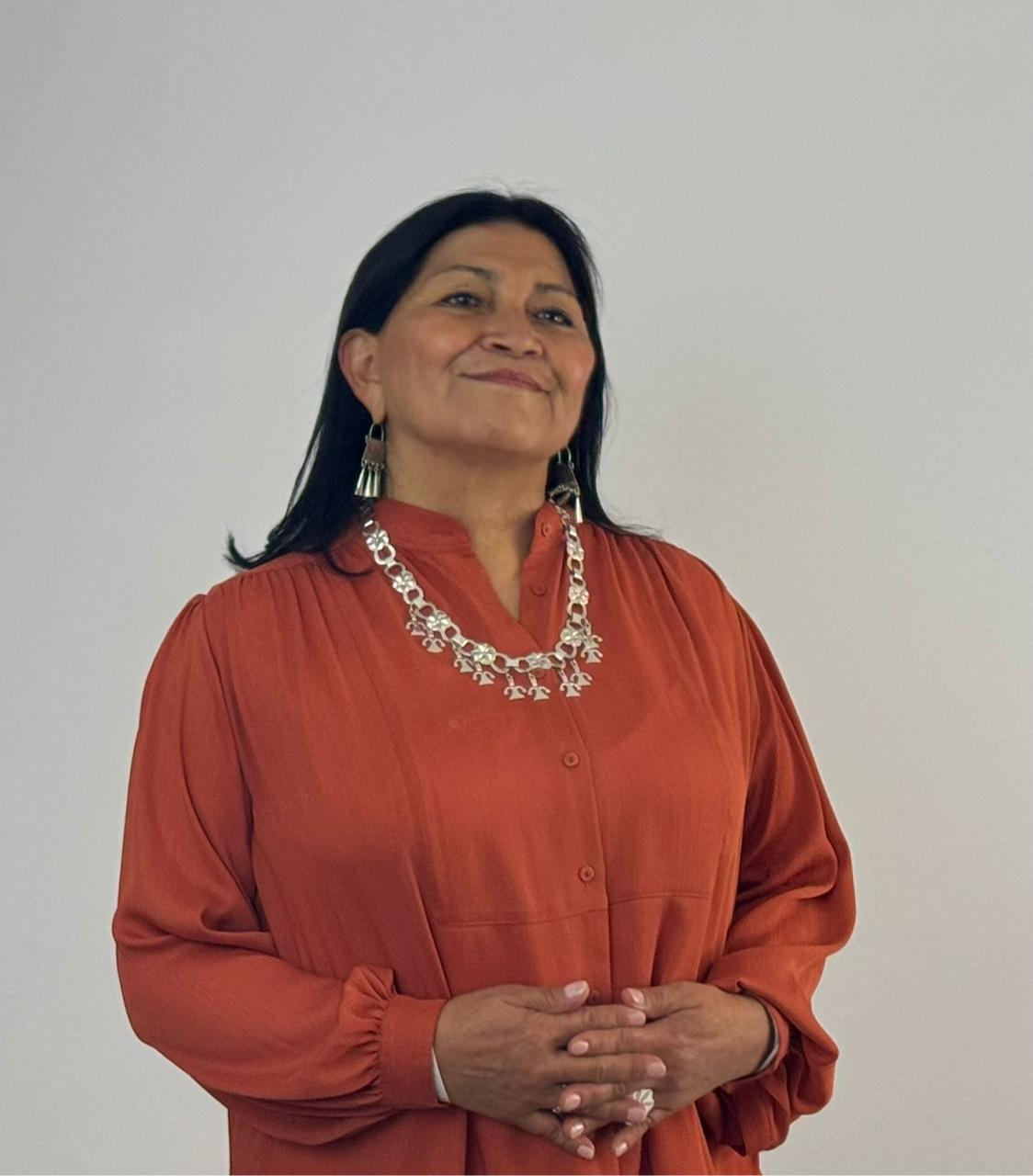
October 5 links two foundational chapters in Chile’s democratic history: the victory of the “NO” in 1988 and the Indigenous Law enacted in 1993. While the plebiscite affirmed that Chileans chose democracy as their path forward, the law made clear that democracy must also repair historical injustices—particularly those suffered by Indigenous Peoples.
Today, this democratic project and its hard-won gains face a direct threat from the far right. Leaders such as José Antonio Kast and Johannes Kaiser push an agenda that, when confronted with social conflict, puts consolidated rights at risk and elevates repression as a tool of governance, undermining the justice-driven spirit of the transition.
The 1988 Plebiscite: A People-Powered Victory Across the Country.
The people of Chile—in their territorial and cultural diversity—turned the 1988 plebiscite into a landmark of popular sovereignty. Through that achievement, citizens reclaimed their right to democracy, transforming the “NO” into the culmination of a long struggle for freedom. The true feat was the grassroots mobilization that took shape in every corner of the country. Despite repression and propaganda, millions of Chileans, in all their diversity, united to reclaim the future. The resounding result on October 5 embodied that broad, diverse, and cross-cutting popular will that said “enough” to the dictatorship.
That is why the victory of the “NO” stands as a symbol of a democracy won by its people. It meant that power no longer resided in the force of a regime but in the collective will of Chileans of every identity and territory. The vote did more than open the door to a transition; it left an indelible lesson: in Chile, democracy is a popular conquest that belongs to everyone.
The 1993 Indigenous Law: A Democratic Step Toward Redress
The return to democracy brought not only political change; it also opened space to address deep social and historical debts. Among the most urgent was the situation of Indigenous peoples, whose lands and communities had been systematically fragmented and privatized, especially during the military dictatorship.
In this new context, Indigenous Law No. 19,253 was enacted on October 5, 1993—a symbolic date that directly links it to the plebiscite. This law was a pioneering attempt to repair the historical harm inflicted by the Chilean state on Indigenous peoples. Its key advance was the legal recognition of Indigenous peoples as collective entities, breaking with the paradigm of forced assimilation that had dominated state policy.
The law established a framework to protect Indigenous culture, language, and—fundamentally—land. To that end, it created the National Corporation for Indigenous Development (CONADI), a public agency charged with implementing policies and administering a land fund for acquisition and restitution. Although the law referred to “ethnic groups” rather than “peoples,” it marked a fundamental shift toward recognizing cultural diversity.
Limitations and Current Challenges
While Law 19,253 was a significant step, it was born with major limitations. The lack of constitutional recognition of Indigenous peoples—a debt that persists to this day—together with CONADI’s predominantly assistance-based approach, restricted community autonomy and failed to resolve the territorial conflict or structural racism at its roots. Nearly three decades later, the law is considered insufficient to meet current Indigenous demands, which include political rights, autonomy, and a new model of relations with the state.
The 1988 plebiscite and the 1993 Indigenous Law are, therefore, two sides of the same coin: the former restored a system in which dialogue and respect for diversity were possible, and the latter was one of the first fruits of that opening—a legal step toward dignity for Indigenous peoples.
The Threat of Backsliding: The Far Right’s Vision
The democratic and social advances achieved since 1990 stand in sharp contrast to the positions of Chile’s far right, represented by figures such as José Antonio Kast and Johannes Kaiser. Their rhetoric and policy proposals pose a direct challenge to the consensus that enabled the transition and the recognition of rights.
This outlook prioritizes free-market orthodoxy, a repressive notion of “order,” and fiscal austerity—positions that clash with demands for a stronger welfare state and the collective rights of Indigenous peoples. On Indigenous matters, privileging private property and investment projects over the rights to consultation and consent—enshrined in ILO Convention 169—threatens to reverse modest gains and exacerbate territorial conflicts.
Moreover, their populist, anti-rights discourse erodes trust in democratic institutions, fuels disinformation and polarization, and delegitimizes social demands. In essence, while democratic governments sought to heal the wounds of the dictatorship and build a more inclusive society, today’s conservative stances put democracy itself at risk and threaten a rollback of the social and Indigenous rights won through great effort.
